With the advancement in technology, more people are pursuing the latest agricultural techniques to grow and improve their businesses. However, when you plan to make your farm the primary source of income, you need to adopt the best methods to manage your business finance. You also need to consider how to protect yourself far from certain legal and financial problems. This is why you need to read our article ” Farm and LLC: All you need to know” and think about opting for an LLC structure for your business.
Wondering if an LLC is good for a farm? Are there any benefits? How can you establish an LLC farm?
If so, read on to understand all the aspects of LLC and farm to make an informed decision.
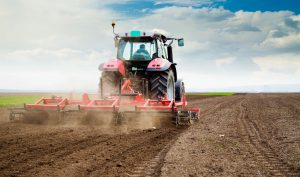
Contents
Is an LLC Good for a Farm?
Typically, a business has to maintain relevant corporate records and books and conduct formal meetings to keep enjoying liability protection. When it comes to LLC, you need to draft an LLC operating agreement that doesn’t require records of your business enterprise and any formal meetings. This allows farm owners to devote sufficient time for their farm operations instead of spending days or even months planning to protect their farm. As you can see, this makes an LLC the right option for your farm.
Another reason why LLC is good for a farm is that LLC offers flexibility. We all know that the circumstances and conditions of a farm can change. In this case, LLC allows you to change its legal structure. For instance, under the LLC structure, non-farm children who don’t have much association with the farm can be categorized as only members. At the same time, farm children involved in the corporation can be LLC managers.
Besides that, LLC offers great features and benefits to protect you against liability lawsuits. You can also transfer farm assets upon death or during your life without getting into complications, like bills of sale, multiple deeds, probate fees, or transfer fees.
An LLC is a type of business entity that offers the best features of different types of entities, like LLP and general partnerships. This business structure is designed to support different companies and businesses by offering their owners a way out of personal liability. An LLC is also perfect for farmers who want to enjoy the best benefits of business organizations but are looking for a structure that is simple to operate.
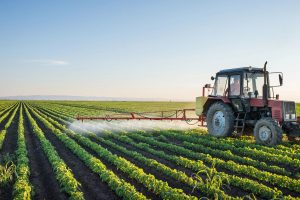
How do You Structure a Farm LLC?
If you want to structure a farm LLC, you have to follow certain steps. Once you complete all the obligations, requirements, and steps, you will be free to enjoy the advantages of the LLC farm. Here are the things you need to do to structure a farm LLC.
Choose a Business Name
When choosing a name for your business, you need to check whether any corporation or LLC is already using this name or has filed to use the name. To do this, you have to check your state’s Secretary of State Database or opt for the CorpNet to do a free corporation’s name search. You can use CorpNet’s free trademark search feature. This will help you determine whether any other farm has filed for the same name.
Additionally, some states also have certain naming requirements that are obligatory to fulfill. For example, if you are planning to create an LLC structure for your farm, you need to add the term farm, limited, company, or LLC at the end of your business name.
After you decide on the name, you need to use the complete farm name on all the company documents that you sign or send.
Get an Employer Identification Number
You will need to apply for an EIN or Employer Identification Number. It is a unique identification number for your farm( Sometimes Called a Tax ID number). This number is important for opening a bank account for your business. It also plays an important role when you apply for licenses and permits, manage several business activities, or hire employees. Any business can apply for an EIN from the Internal Revenue Service. Also, the application process is free.
You can click on this link here and Apply EIN Online
Apply for Articles of Organization
After choosing the state where you are planning to establish your business, you need to file for an article of organization in that specific state. The requirements for filing these documents can vary by state. Similarly, the information in the document depends on your chosen state.
Some commons things that you will need to provide, no matter what the US state is include:
- Managers’ and members’ name
- Address and name of your LLC
- Type of company you will operate
- Address and name of the registered agent
Create an Operating Agreement
While you are managing different documents for LLC for farm business, experts suggest creating an operating agreement. To make it clear, your state doesn’t require you to create this agreement, but it can help you run your farm the way you want.
This agreement helps you specify the responsibilities and roles of the managers and owners of your farm LLC. Also, it offers information about the LLC members’ ownership interests, important details to operate the business, rules and regulations to deal with a dispute between the members, and profit distributions laws.
If you have a family-owned farm LLC, you also need to create certain rules to manage life-changing events, such as deaths, births, divorces, and marriages. For instance, farm owners might want to establish a rule or create an agreement that if a child is born, they will automatically get the member status. Or you may want to establish a rule that will identify the future class of membership for your grandchildren.
A detailed operating agreement offers you ways to prevent conflicts and misunderstandings. It also helps you keep every individual linked to the farm on the same page and ensures that they follow the same protocols. In fact, you can even set rules that can help you impose penalties for members who don’t follow the agreement.
Opt for Business Permits and Licenses
Since the farm is an agriculture business, you need to apply for the industry-specific permit and agriculture business license to create an LLC business.
But before that, you need to research the state, federal, and local policies and rules. Keep in mind that the permits and licenses your LLC needs will depend on the following things.
- Whether you use organic or conventional farming methods
- The city you operate your farm
- What are your procedures for producing milk, veggies, meat, fruits, eggs, etc.?
- Where are you planning to sell your products? It can be through wholesale methods to restaurants or grocery stores, directly to consumers via farmer markets, or through a CSA.
Open a Bank Account
For your farm LLC, you also need to open a bank account. To continue enjoying the personal liability protection through the LLC structure, you must maintain your personal expense and business expenditures separately.
This is why it is important to open a bank account to deal with your farm finances. On top of that, try not to combine your personal funds with your business funds.
Meet Compliance Obligations
Once you have all the documents and items that are needed to start your LLC farm, you need to meet certain compliance requirements each year. You have to fulfill the requirements relating to various renewal and filing procedures that the state, local, and federal governments have established. And federal, state, and local policies change every year. So, research about the policies and laws every year to stay compliant.
You also need to consider the deadlines when applying for each document. If you fail, you may have to face lawsuits, pay hefty penalties and fines, or even face the risk of business suspension.
Here are some common compliance requirements for an LLC.
- Holding member meetings
- Renewing permits and licenses
- Filling annual reports with your state
- Documenting minutes of meeting
- Updating your state when you make major changes in your LLC structure
- Filing taxes
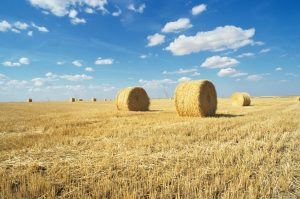
Should a Farm be a Sole Proprietor or LLC?
Before making any decision, let’s discuss both entities separately.
Sole Proprietorship
Many farmers opt for this business structure because it is the easiest business entity when an individual is involved. For this legal structure, you don’t need to file any special papers or register with the state. If you operate a farm that is not under your name, you may have to apply for the “d/b/a” certificate in your town to do business.
The cost of filing this certificate can greatly vary by town. Also, it’s best to discuss the matter with the town hall before starting a business as there may be some other registration requirements.
Furthermore, as a sole proprietor or business owner, you will be liable for all the obligations and liabilities associated with the business. You also need to report farm losses and income on your own personal tax return.
Experts generally don’t recommend sole proprietorship for businesses with a high liability risk. This is also true for farms that sell products to the public.
Limited Liability Company (LLC)
An LLC includes several incredible features that make it the first choice for most businesses in the US. This businesses structure offers you liability protection on a limited basis and provides some operating advantages inherent in partnership and sole proprietorship structures.
There are several methods to design an LLC that give you the freedom to operate your business the way you like. It also gives you an opportunity to protect your business interest in times of conflict between owners and managers.
Which one is the Right Option for You?
A sole proprietorship is an ideal business structure for most companies, but it might not be a good option for the agriculture industry. Since farms are prone to risks due to changes in production caused by weather or season, you might experience many problems and challenges because of being the sole owner of the business.
Is a farm LLC right for you? The simple answer is yes. An LLC structure for farming businesses provides you with personal liability protection. You can operate your business within the set of rules you have created and without worrying about setbacks.
Unlike a sole proprietorship, there can be more than one business owner of the company. You can also specify the designation of other members to prevent disputes and problems later on.
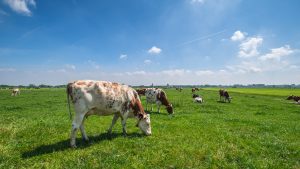
Advantages and Disadvantages of LLC for Farm Businesses
Although LLC is an ideal business structure for a farm business, it also has some disadvantages. You need to consider the benefits and drawbacks before making your decision.
Advantages
Self-Employment Tax
An LLC can be significantly beneficial for business owners when it comes to self-employment tax. While it’s true that many people love to establish their own business and be their own boss, tax time can force you to rethink your decision of being a sole owner.
This is because you will end up paying a significant amount from your yearly profits as taxes. However, LLC for farm business can save you from this problem.
For instance, as a sole proprietor, you might earn a net profit of $40,000 on the farm income on which you have to pay the self-employment tax of 15%. However, if you decide to convert your business to an LLC farm, the numbers will differ. In most cases, you will pay considerably less in taxes.
Corporate Formalities
If you want to run a successful business, you will likely have to go through several corporate formalities, and most of them are obligatory. You have to arrange regular meetings of the shareholders and board of directors. The farm also needs to file its annual reports and maintain written records, such as minutes of meetings.
With an LLC farm, you don’t have to meet managers and shareholders unless you need their help or have to make big decisions. This reduces the complex paperwork and complications.
No Ownership Restrictions
Whether there are two or more candidates competing for the ownership designation, LLC offers you several options to offer them responsibilities and designations. But in the case of other corporate structures, you may have a limited number of shareholders.
For instance, S-corporations don’t allow more than 100 stockholders. The sole proprietorship structure only allows a single person to become the owner of the farm.
Method of Accounting
In the case of a C-corporation, you can only use the accrual method of accounting. LLC allows you to use the cash method of accounting for your LLC farm. This way, accounting becomes much easier and hassle-free in LLC.
Membership Interests in a Living Trust
One of the advantages of an LLC for farming is that it allows business members to opt for a membership interest in a living trust. This is something that you can’t do in most other entities, such as S-corporations.
Future Plans
LLC farm offers you more stability than any other business structure, as it allows you to specify the owners in case of the death of one or more owners.
In fact, you can design a succession plan to avoid conflicts in the family or between partners. LLC also allows you to gift the farm to the next generation of the family without struggling with documentation.
Disadvantages
Profits Subject to Medicare Taxes and Social Security
Some farmers who don’t have knowledge of the laws and policies of an LLC may end up paying more taxes than other owners. The profits and salaries of an LLC are taxed due to social security benefits and medicare taxes. But with a well-designed LLC farm, you can avoid this problem.
Profit Recognition
Some entities, like the C-corporation, don’t have to transfer the profits to all shareholders immediately. This way, the shareholders in a C-corporation don’t have to pay taxes on business profits. But in the case of an LLC, profits are automatically added to members’ income, which leads to problems.
Fringe Benefits
For people working in an LLC and getting fringe benefits, such as medical insurance, group insurance, medical reimbursement plans, and parking, these benefits are deemed taxable income.
However, employees in C-corporation are not subject to any taxes if they receive fringe benefits. On the other hand, S-corporations deduct taxes for employees who own up to 2% of the S-corporation.
Bottom Line
There are several advantages and disadvantages of an LLC for farming. You need to make a decision by considering all the factors and variables. Think about whether you need tax benefits and protection from risk. Also, think about whether you need to plan for the future of your company. Once you think about all these crucial aspects, it will be easier for you to choose the right legal entity for your farm business.
Sources
https://bfnmass.org/blog/choosing-and-securing-right-legal-entity-your-farm
https://www.farmprogress.com/story-should-farm-llc-9-140353
https://www.noble.org/news/publications/ag-news-and-views/2017/june/selecting-best-business-structure-for-farm/
https://farmlandaccess.org/llc/
https://www.sapling.com/6307599/advantages-llc-farming
https://www.alllaw.com/articles/business_and_corporate/articlelz10.asp
Learn More
When Are Farmers Income Taxes Due? (Best Guide)
When Are Farmers Income Taxes Due? (Best Guide)
How Long Does It Take to Get an LLC?
LLC for Rental Property in California

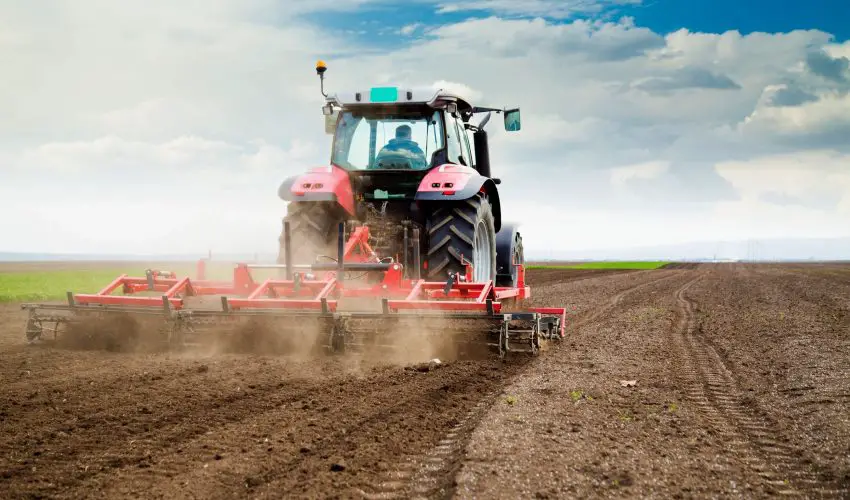




1 thought on “Farm and LLC: All You Need to Know”